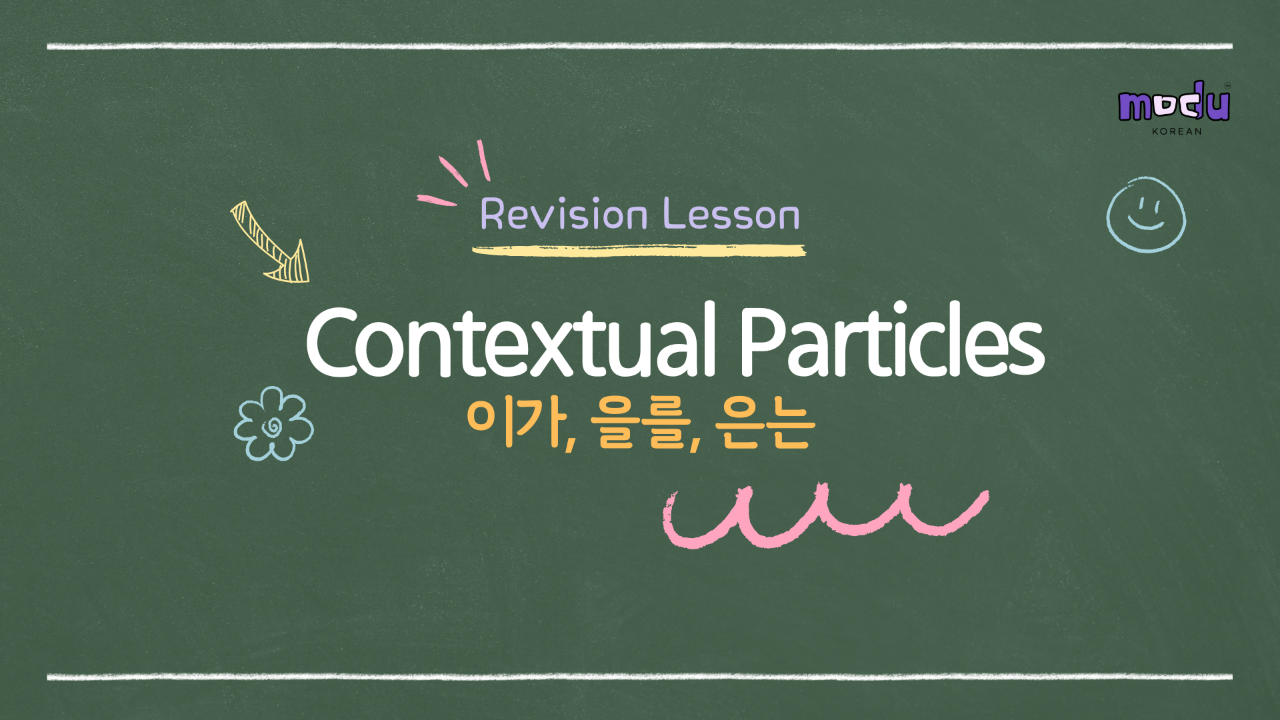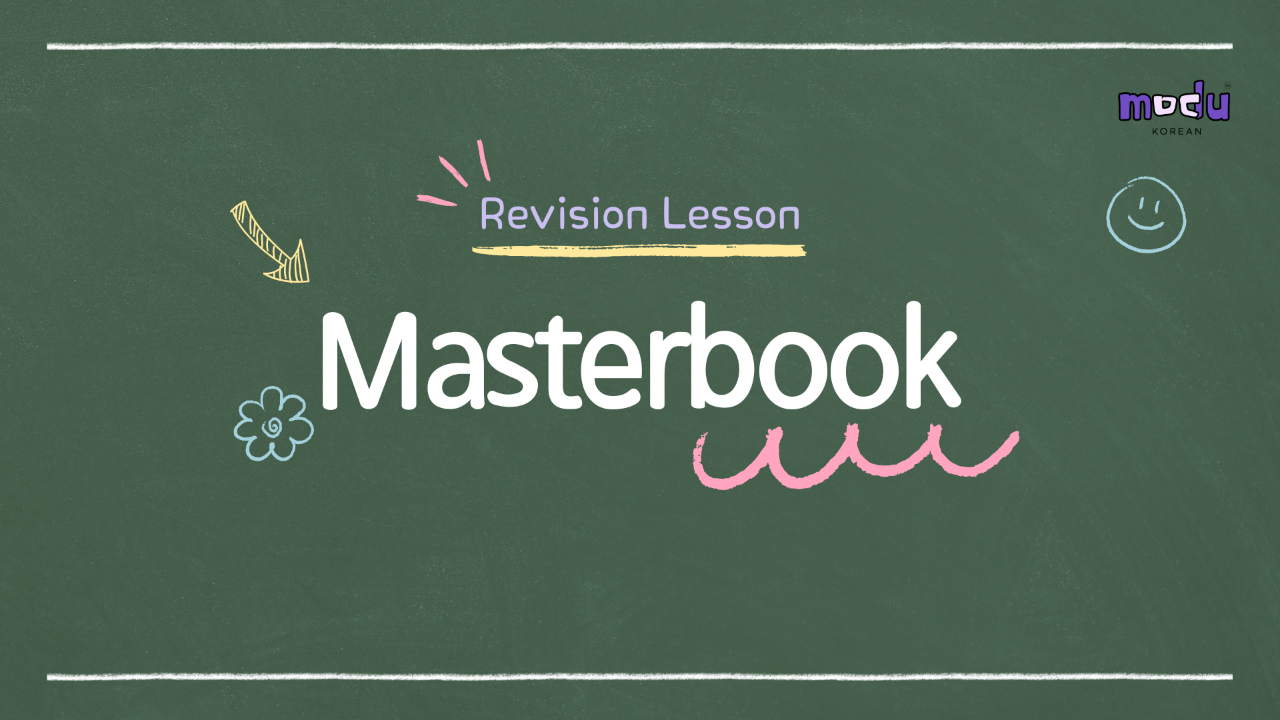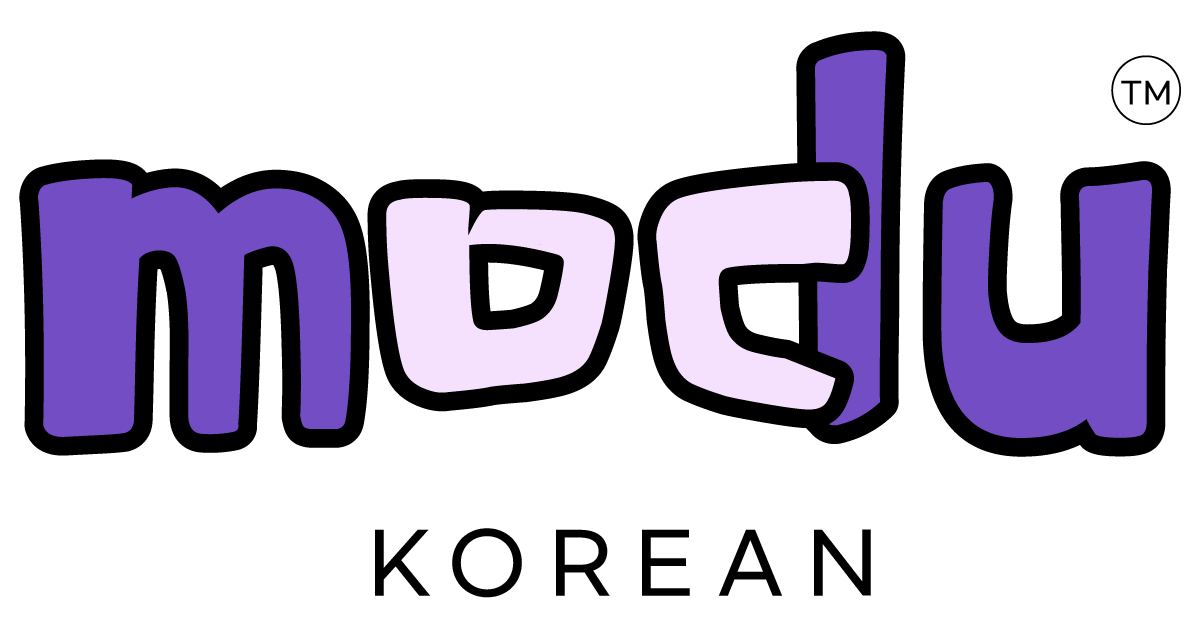Topic/Revision Classes
How to best understand the Korean language as an English speaker.
Topics
Beginners Lesson Pack
If you're in the Complete Beginners or Secondary Beginners levels at Modu Korean - you'll want to start off with this lesson pack which includes:
- Pronunciation Masterclass
- Study Skills MasterClass
- English Grammar
Get 20% off when purchasing the package over individual lessons.
Download Now

Study Skills Masterclass
Haven't been a student in a few decades? Not sure how to organise your notes and schedule? This lesson is recommended to EVERYONE who studying Korean and want to make the most out of their time and effort.
- Preparing for lessons and what to do during and after class
- How to schedule your Korean study to match your lifestyle
- Best way to memorise vocab
- Beginners and Advanced tips on how to effectively understand Korean language as an English speaker
Suitable for all levels of Korean from beginners to advanced.

English vs. Korean Grammar
Understanding the basics grammar is an essential part of learning a new language because it serves as a point of reference.
- What is a Topic, Subject Object?
- What are adverbs, adjectives, nouns, verbs?
- How can we apply this to Korean language?
- What are the main differences between Korean and English in terms of grammar?
Suitable for all levels of Korean from beginners to advanced.

Understanding spoken Korean
Are you learning Korean so you can be great at reading and writing it? Surely not! Here's how you can wean yourself off having to write something down in order to understand it.
- Tips and shortcuts on listening and interpreting to Korean
- How to not rely on written text when translating.
Suitable for Secondary Beginners term 2 and above.

Contextual Particles
이가, 을를, 이가
- Topic Particle
- Subject Particle
- Object Particle
- These particles are based off CONTEXT only - do you know what this means?
- This includes 2 x lessons (3 hours worth). Both lessons are the same but the examples are different for those who want more explanation.
Secondary Fundamentals and above.
This lesson is now over so you can watch the recorded version straight away!

Pronunciation Masterclass
Korean pronunciation is completely different to English but there IS a way! This lesson covers EVERYTHING you need to know about Korean pronunciation.
- 3 x Carry on Rules
- Special Rules
- Combined vowels
- Reading complex combinations
Suitable for people who can read and write Korean.

Hangeul and Reading
This lesson is not to teach you how to read and write. It's for people who have learnt it but still feeling unconfident in writing or memorising it.
- Gain confidence in reading
- Accuracy in writing and typing
- Tips on how to rcognising different patterns
- Tips on memorising characters
- How to write non-Korean words in Hangeul
Suitable for people who have learnt to read and write Hangeul.

Adverbs
Korean adverbs are really simple to use as long as you understand the rules to structure them. Learn the most common Korean adverbs and how to use them in daily sentences!
- Ordering sentences
- Splitting NounVerbs
- 잘, 못, 안,
- Quantity & Frequency adverbs
- How to use more than one adverb in a sentence
Suitable for Secondary Beginners and above.

Primary Verb Variations
We will the most commonly used and foundational verb conjugations in Korean. We will also use this to cover the difference between the most common types of Noun-Verbs 되다/하다/나다.
- How to understand 되다/하다/나다 ending words
- Dictionary
- Basic
- Basic Formal
- Basic Past-tense
- Basic Past-tense Formal
- Respectful
- Respectful Past-tense
Suitable for Complete Beginners term 2 and above.

Particles
Particles are arguable one of the trickiest things about Korean since they don't exist in English. This lesson covers the following particles with a focus on 이가, 을를, 이가.
- The contextual differences between 이가, 을를, 은는 and when to omit them
- Direction and Tool: 으로/로
- Possessive: 의
- Place: 에서
- Time: 에
Suitable for Fundamentals and above

이에요/예요
This is one of the most common types of sentences in Korean. It's used in the most basic sentences as well as much more advanced ones.
- Recognising when to use Noun is Noun in English sentences
- Apply it to basic and complex sentences
Suitable for Complete Beginners Term 2 and above.

Advanced Conjugations
Revision of some of the more advanved variations.
- Let’s: 하자
- Pure Adjectives: ㄴ,은
- Respectful: 시다/셔
- Confirmation: 지/죠
- Past-tense Dictionary: ㅆ다
Suitable for Fundamentals term 2 and above.

Masterbook Notetaking
Unsure of how to write your notes?
- Effective note-taking
- Organising your notebook into chapters
- Organising your vocab lists.
Suitable for all levels!
What was your favourite lesson and who would you recommend it to?

Future Korean-speaking-you, will thank you for it.
Keep up to date with the Armys and their Army Bombs







